Dem Rep. Dean Phillips blasts Biden after Hunter pardon, says some people ‘are indeed above the law’

A Democratic U.S. congressman on Monday said it appears that certain people are “above the law” after President Biden pardoned his son, Hunter Biden, despite repeatedly saying he would not give his son a pass. Rep. Dean Phillips, D-Minn., responded to Biden’s decision to pardon Hunter on social media, blasting the president’s own words from earlier this year that “no one is above the law.” “Let’s just say the quiet part out loud, certain Americans are indeed above the law and influence is always for sale,” Phillips wrote on X. “It’s time for the exhausted majority to condemn and confront legalized corruption.” President Biden issued a sweeping pardon for Hunter Biden on Sunday after he had repeatedly said he would not do so. The first son had been convicted in two separate federal cases earlier this year. He pleaded guilty to federal tax charges in September, and was convicted of three felony gun charges in June after lying on a mandatory gun purchase form by saying he was not illegally using or addicted to drugs. HUNTER BIDEN GUN CASE TERMINATED AFTER PARDON, BUT FEDERAL JUDGE STOPS SHORT OF FULL DISMISSAL The president argued in a statement that Hunter was “singled out only because he is my son” and that there was an effort to “break Hunter” in order to “break me.” Biden had stated on record multiple times that he would not pardon Hunter should a jury convict his son. Phillips, who unsuccessfully ran for the Democratic nomination for president, argued that perhaps both Hunter Biden and Trump may not have been charged in their respective criminal cases under different circumstances. “Two things can be true at once: Neither Hunter Biden nor Donald Trump would have been charged with certain crimes had they not been political figures,” he wrote. “Pardoning powers have been abused by Trump and now Biden, and must be reformed.” TAPPER SAYS BIDEN LYING ABOUT PARDONING HUNTER MAKES HIS ADMIN AND ALLIES ‘EITHER CREDULOUS OR COMPLICIT’ The pardon has been met with widespread criticism from Republicans, some Democrats and the media. Reporters grilled White House press secretary Karine Jean-Pierre on Monday, asking whether Biden and his surrogates lied to the American people. Jean-Pierre responded, “One thing the president believes is to always be truthful with the American people,” and repeatedly pointed to Biden’s own statement on the matter. Biden has yet to take questions from reporters on why he broke his pledge to Americans and decided to pardon the first son. Fox News Digital’s Alexander Hall contributed to this report.
Trump bucks Biden’s ‘don’t’ doctrine on world stage, hits adversaries with ‘all hell to pay’ deadline
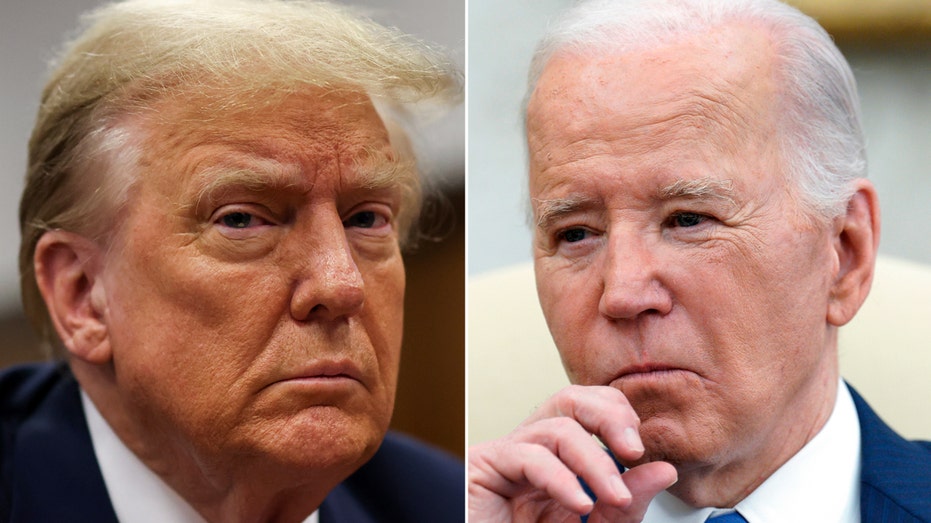
In the waning days of the Biden administration, President-elect Trump is bucking his predecessor’s “don’t” doctrine as a deterrent to foreign adversaries, instead issuing tough warnings before even taking office. “If the hostages are not released prior to January 20, 2025, the date that I proudly assume Office as President of the United States, there will be ALL HELL TO PAY in the Middle East, and for those in charge who perpetrated these atrocities against Humanity,” Trump warned Hamas on his Truth Social account Monday. “Everybody is talking about the hostages who are being held so violently, inhumanely, and against the will of the entire World, in the Middle East – But it’s all talk, and no action!” Trump added. War broke out in the Middle East on Oct. 7, 2023, when Hamas launched a surprise attack on Israel. Terrorists kidnapped more than 200 people from Israel, with Hamas still holding 101 hostages, including seven Americans, in Gaza more than a year after the war began. BIDEN SAYING ‘DON’T’ AND OTHER THREATS SEEMINGLY FAIL TO DETER IRAN AS MORE US MIDEAST BASES HIT The White House and Israeli government have worked for months to secure a hostage release deal, but have been unsuccessful. Trump’s tough language against Hamas, which included warning those responsible for holding the hostages that they “will be hit harder than anybody has been hit in the long and storied History of the United States of America,” stands in stark contrast to President Biden’s “don’t” doctrine regarding the war in Israel. After the war began last year, Biden delivered remarks from Israel where he warned adversaries of Israel and the U.S. “don’t” attack Israel. REPUBLICANS SLAM BIDEN’S ‘DON’T’ DETERRENCE: ‘EVERY TIME HE SAYS DON’T, THEY DO’ “And my message to any state or any other hostile actor thinking about attacking Israel remains the same as it was a week ago: Don’t. Don’t. Don’t,” he said. War continued despite the warning, including from Iranian proxies against Israel. This year, Biden doubled down on his warning of “don’t” aimed at Iran. When asked by reporters about Iran’s expectation to attack Israel in April, he said his message to Tehran is: “Don’t.” “We are devoted to the defense of Israel. We will support Israel. We will help defend Israel and Iran will not succeed,” he added. Again in August, Biden warned Iran against attacking Israel with the one-word threat. TRUMP PROMISES ‘HELL TO PAY’ IN MIDDLE EAST IF HOSTAGES ARE NOT RELEASED BEFORE HE TAKES OFFICE Biden’s common response to deter foreign adversaries from attacking Israel is viewed as a failed policy, with conservative security experts and others slamming the message as weak. “The Administration keeps saying ‘don’t’ to Iran – but then does nothing to impose costs. This weakness means the risk from Iran continues to grow,” former Secretary of State Mike Pompeo tweeted in August. “Well, he said, ‘Don’t’ multiple times, and ‘Don’t’ isn’t a national security policy,” Pompeo added later this year in a comment to Fox News. “It’s not even a deterrent. “So much for President Biden telling bad guys ‘Don’t’ actually being an effective deterrent. Every time he says ’Don’t,’ they do,” Sen. Lindsey Graham, R-S.C., wrote in a post in April, after Iran launched more than 300 missiles and drones at Israel. ‘WAR FOLLOWED US’: A SYRIAN FAMILY FLED BEIRUT AFTER ISRAELI BOMBARDMENT TO FACE REPRESSION, BOMBING AT HOME “Biden’s approach with Iran and the Middle East is backwards,” Rep. Nancy Mace, R-S.C. wrote on X. “Now as we risk entering WWIII, the US must stand by Israel’s commitment to democracy. The president must stand firm, and stop coddling Iran immediately.” “I guess Biden’s speechwriters have him down to one word now. At least he can remember it. Worse when referring to the hospital carnage he calls Hamas the other team,” Fox News’ Greg Gutfeld quipped after the war in Israel broke out last year, mocking Biden’s use of the word “don’t.” Trump had campaigned on ending the wars in both Ukraine and Israel, both of which began under the Biden administration, and claimed that neither war would have been launched if he had been president. “The Ukraine situation is so horrible, the Israeli situation is so horrible. We are going to get them solved very fast,” Trump said on the campaign trail in January. Israeli officials celebrated Trump’s tough stance against terrorists in the Middle East and his demand for hostages to be released by next month. “Thank you and bless you Mr. President-elect,” President Isaac Herzog of Israel said in a post on social media. “We all pray for the moment we see our sisters and brothers back home!” The nation’s finance minister, Bezalel Smotrich, added: “How refreshing it is to hear clear and morally sound statements that do not create a false equivalence or call for addressing ‘both sides.’ This is the way to bring back the hostages: by increasing the pressure and the costs for Hamas and its supporters, and defeating them, rather than giving in to their absurd demands.” Trump will be inaugurated as the nation’s 47th president on Jan. 20, with his team celebrating that he’s already following through on his campaign promises. “President Trump is working towards international peace. In anticipation of the incoming Trump administration, Iran has called off its reprisal attack on Israel and negotiations to end the war in Gaza and Russia’s war in Ukraine have accelerated. One former NATO Supreme Allied Commander says America’s enemies are ‘concerned, they’re nervous – [and] they ought to be,’” the Trump War Room said in an email this week, titled, “Promises Kept – And President Trump Hasn’t Even Been Inaugurated Yet.”
Top conservative group reveals roadmap to rebuild new US immigration system ‘from the ashes’
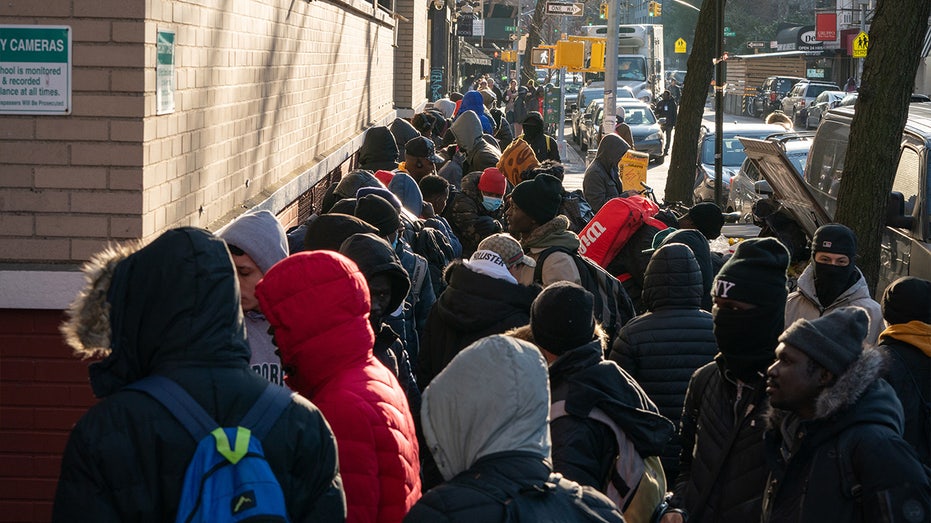
FIRST ON FOX: A conservative think tank is outlining how the incoming Republican Congress can fundamentally overhaul the American immigration system, helping it rise “from the ashes” left by the Biden administration. In a new paper, the Heritage Foundation provides a roadmap to Congress, suggesting it go beyond border security and overhaul the U.S. immigration system. In the paper, author Lora Ries – director of the Heritage’s Border Security and Immigration Center – argues that there has been a dysfunctional immigration system for decades. It made legal immigration complicated and slow, while illegal immigration was rarely punished. FIVE THINGS TO WATCH FOR ON IMMIGRATION AND BORDER SECURITY IN 2025 “In short, it is a slow, frustrating, and expensive hassle to immigrate to the U.S. lawfully. As a result, when it is faster, easier, and cheaper to migrate to America illegally, then that is what some human beings will do – and have done for decades. Others will not come to the U.S. at all to start businesses or incubate new technologies,” she says. She argues that the Biden administration transformed the immigration system further and “erased the line between legal and illegal immigration.” She accuses the administration of abusing humanitarian parole, making asylum meaningless and unleashing an open borders agenda. “America’s immigration system used to be broken both because of a lack of enforcement and because of its overly complicated statutory provisions. Now it is a pile of ashes,” she says. BORDER STATE OFFERS TRUMP MASSIVE PLOT OF LAND TO AID MASS DEPORTATION OPERATION But now, with a hawkish incoming Trump administration and a supportive Republican House and Senate about to be sworn in, Ries and Heritage outline five principles for how to proceed. “However, from the ashes comes a great opportunity to redesign a new, simpler, fairer, and more manageable immigration system that prioritizes America first and legal immigrants second,” she says. “The principles and policies laid out in this report can play a crucial role in shaping just such a new immigration system.” Those principles include upholding the rule of law, acknowledging that the immigration system serves the American people, ensuring the U.S. is secure, creating a system that is simple and sustainable, and eliminating incentives to break immigration laws. As a result, under each principle comes a series of more specific recommendations for Congress to follow. In the area of legal immigration, the roadmap recommends that those who violate visa terms should have them revoked, including those supporting terrorist groups; that proof of citizenship should be required to vote; that only citizens should be counted in the census for congressional apportionment; and that the visa system must ensure that wages for Americans are not flattened. The paper supports the abolition of the lottery system for green cards, says employers should be allowed to hire U.S. citizens over foreign nationals, and calls for assimilation as “critical for America to remain a united country.” It recommends the implementation of E-Verify, and that due process in immigration be limited. CLICK HERE FOR MORE COVERAGE OF THE BORDER SECURITY CRISIS On border security, the paper recommends that Border Patrol should have expulsion authority during national crises, and that immigration detention is necessary to protect public safety and ensure deportations, while security should be fully resourced. It also argues that the government should not “collude” with non-governmental organizations to further illegal immigration. More broadly, the paper calls for the simplification of the Immigration and Nationality Act to make the process less complicated and the elimination of a number of waivers and exemptions. It argues that costs and data on immigration should be made available and that in times of immense backlogs, intake of new immigrants should be paused. Finally, it says Congress should exclude illegal immigrants from benefits such as bank accounts, and that lawmakers “should oppose all forms of amnesty and should not reward illegal behavior or violation of our immigration laws.” President-elect Trump has made it clear he sees immigration and border security as top priorities for his incoming administration. He has appointed former Immigration and Customs Enforcement (ICE) director Tom Homan as the “border czar” and South Dakota Gov. Kristi Noem as his nominee to lead the Department of Homeland Security. A number of Republican lawmakers won their elections in November by focusing on illegal immigration at the southern border and the Biden administration’s handling of the crisis.
This year, Arab-American political power came to the fore

One of the major political developments in the United States that has gotten little attention in the wake of the Democrats’ astounding loss in the November 5 elections is the success of Arab American political organising. A new generation of political activists has emerged that has earned representation in unprecedented numbers and impact for the 3.5-million-strong Arab-American community in elected and appointed political offices. It also put Arab Americans on the electoral map for the first time by launching the Uncommitted movement during the Democratic primaries and making a foreign policy issue – Israel’s genocide in Gaza – a national moral issue. The Democratic Party underestimated the power of this new generation and the intensity of citizen anger, which cost it dearly in the election. What happened in the Arab American community is a vintage all-American tale. They, like other communities, started their pursuit of political impact as a low-profile immigrant group who became dynamic citizens after political developments threatened their wellbeing and motivated them to take action. Advertisement Arab American mobilisation traces its beginnings to small-scale participation in Jesse Jackson’s 1984 and 1988 presidential campaigns for the Democratic Party. Jackson was the first serious presidential candidate to include Arab Americans as Democratic Party convention delegates, part of his Rainbow Coalition of “the white, the Hispanic, the Black, the Arab, the Jew, the woman, the Native American, the small farmer, the businessperson, the environmentalist, the peace activist, the young, the old, the lesbian, the gay, and the disabled [who] make up the American quilt”. His campaign gave momentum to voter registration drives within the Arab American community, which continued in the following three decades. By 2020, nearly 90 percent of Arab Americans were registered to vote. By 2024, the Arab American voter block – in its expansive coalition with other groups – had grown large enough to impact outcomes in critical swing states, especially Michigan and Pennsylvania. The attacks of 9/11 and the subsequent backlash motivated Arab Americans even more to engage in meaningful politics. Many members of the community refused to live in fear, trying to avoid the intimidation and smears that had long kept their parents and grandparents subdued and quiescent politically. As Omar Kurdi, founder of Arab Americans of Cleveland, told me, “We were no longer silent because we saw the dangers to us of being quiet and politically inactive. We refused to live in fear of politics. Since then, we have been proud, confident, and active in public. We no longer accept crumbs, but want our share of the pie, and we understand now how we can work for that.” Advertisement As a result, over the past two decades, Arab Americans have entered the public sphere and politics at all levels: from local, city, and county positions to state and federal ones. Elected officials say they succeeded because their constituents knew and trusted them. Candidates who won state and national congressional seats – like Rashida Tlaib in Michigan – inspired hundreds of younger Arab Americans to enter the political fray. Successful experiences in city politics educated newcomers on how they could impact decision-making, improve their own lives, and serve the entire community. They mastered locally the basics of politics, one Ohio activist told me, “like lobbying, bringing pressure, protesting, educating the public, achieving consensus, and creating coalitions based on shared values, problems, and goals”. All of this momentum, built up over the years, coalesced into the Uncommitted movement in 2024. As the Biden administration unconditionally supported Israel to carry out genocidal violence in Palestine and Lebanon, Arab-American activists moved to use their newfound leverage as voters in electoral politics. They joined like-minded social justice activists from other groups that mainstream political parties had long taken for granted – including Muslim Americans, Blacks, Hispanics, youth, progressive Jews, churches, and unions – and sent a strong message during the primaries that they would not support Biden’s re-election bid unless he changed his position on Gaza. The campaign hoped that tens of thousands of voters in the primaries would send the Democrats a big message by voting “uncommitted”, but in fact, hundreds of thousands of Democrats did so across half a dozen critical states. These numbers were enough to send 30 Uncommitted delegates to the Democratic National Convention in August, where they could lobby their colleagues to shape the party’s national platform. Advertisement One activist involved in the process told me they convinced 320 of the other 5,000 delegates to support their demand for a party commitment to a Gaza ceasefire and arms embargo on Israel – not enough to change the party position, but enough to prove that working from inside the political system over time could move things in a better direction. Intergenerational support and motivation were big factors in the success of the Uncommitted movement. Arab American Institute Executive Director Maya Berry, who has been involved in such activities for three decades, told me that Arab Americans were always in political positions, but in small numbers, so they had little impact. However, they learned how the system works and provided valuable insights when the time came this year to act. She mentioned Abbas Alawiyeh as an example, who co-chairs the Uncommitted National Movement and worked as a congressional staffer for many years. The Uncommitted movement’s precise contribution to the Democratic Party’s defeat is hotly debated right now. One activist told me the movement “placed Arab Americans at the centre of Democratic Party politics, led the progressives, helped Harris lose in swing states, and nationally brought attention to Gaza, divestment, and moral issues in ways we had never been able to do previously.” All this occurs in uncharted territory, with no clarity if Arab Americans can influence both the Democratic and Republican parties who might now compete for their vote. One Arab-American activist in his 30s added, “We are liberated from the Democrats who took us for granted, and we Arab Americans are now a swing vote officially.” Advertisement Other activists I spoke to thought the election experience
Crime against humanity: Why has a court found Belgium guilty of kidnapping?
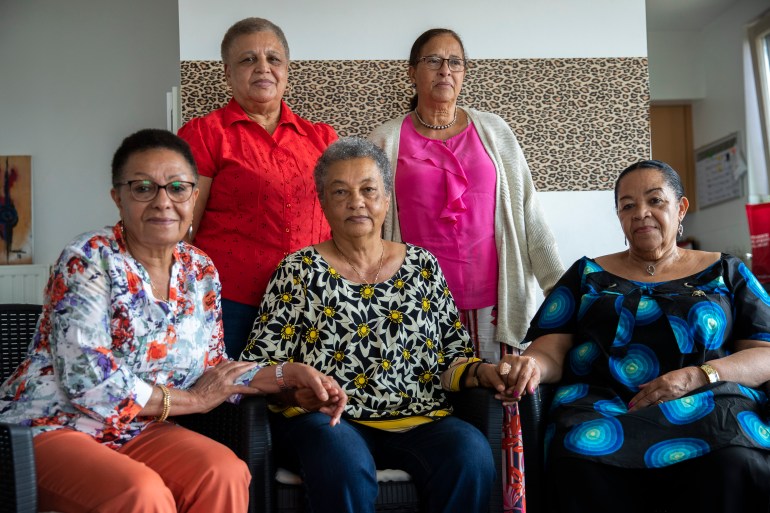
A court has ordered Belgium to pay millions of dollars in compensation to five mixed-race women who were forcibly taken from their homes in the Belgian Congo as children, under a colonial-era practice that judges said was a “crime against humanity”. The landmark ruling on Monday by the Brussels Court of Appeal came after years of legal battle by the aggrieved women. It sets a historic precedent for state-sanctioned abductions that saw thousands of children kidnapped from today’s Democratic Republic of the Congo because of their racial makeup. An earlier ruling from a lower court in 2021 rejected the women’s claims. However, the Appeals court on Monday ordered the Belgian state to “compensate the appellants for the moral damage resulting from the loss of their connection to their mothers and the damage to their identity and their connection to their original environment”. The five women will receive 250,000 euros ($267,000) combined. Monique Bitu Bingi (71), one of the women who brought the case in 2020, told Al Jazeera she was satisfied with the ruling. Advertisement “I am very happy that justice has finally been delivered to us,” she said. ” And I’m happy that this was termed a crime against humanity.” Here’s what to know about the case, and why the court ruling is historic: In this June 29, 2020 file photo, clockwise from top left: Simone Ngalula, Monique Bitu Bingi, Lea Tavares Mujinga, Noelle Verbeeken and Marie-Jose Loshi [File: Francisco Seco/AP] Why were the women kidnapped? The five plaintiffs, including Bitu Bingi, were among an estimated 5,000 to 20,000 mixed-race children who were snatched from their mothers in the former Belgian Congo (today’s Democratic Republic of the Congo) and forcibly taken to faraway cities, or, in some cases, shipped to Belgium for adoption. Following the violent rule of King Leopold II, which resulted in the deaths and mutilations of millions of Congolese, the Belgian state took over the occupation and continued to operate an immensely exploitative system over the colony between 1908 and 1960. Belgium also controlled the then Ruanda-Urundi, or today’s Rwanda and Burundi, where hundreds, if not thousands of bi-racial children were also taken. Now called Metis, a French term meaning ‘mixed’, the children were kidnapped between 1948 and 1961, in the lead-up to Congo’s independence. Belgian colonial authorities believed that bi-racial children threatened the white supremacy narrative they had continually pushed and that they used to justify colonialism, experts say. “They were feared because their mere existence was shaking the very foundations of this racial theory that was at the core of the colonial project,” Delphine Lauwers, an archivist and historian at the State Archives of Belgium told Al Jazeera. Advertisement Authorities systematically discriminated against the children and referred to them as “children of sin”. While white Belgian men were not legally allowed to marry African women, such interracial unions existed. Some children were also born to women as a result of rape, in situations where African housekeepers were treated as concubines. Catholic missions were key to the abductions. From a young age, bi-racial children were snatched or coerced away from their mothers and sent to orphanages or missionaries, some in Congo or Belgium. The state justified the practice based on a colonial-era law that allowed for the confinement of bi-racial children to state or religious institutions. Some of the Belgian fathers refused to acknowledge paternity – because they were from supposedly reputable homes – and so, in many cases, the children were declared to be orphaned or without known fathers. Colonial authorities also changed the children’s names, first so they would not affect their father’s reputation, and also so the children would not be able to connect with their family members. It was not until 1959, when the three colonies were near attaining independence, that the kidnapping and shipping of children from the region began to abate. In Belgium, some of the children were not accepted because of their mixed backgrounds. Some never received Belgian nationality and became stateless. Metis said they were treated as third-class citizens in Belgium for a long time. Most of those affected can still not access their birth records or find their parents. A bust of Belgium former King Leopold II that has been daubed with red paint is removed by a city worker in Auderghem, near Brussels, on June 12, 2020 as several statues of the late monarch, a symbol of Belgium’s bloody history as a colonial power in central Africa, have been defaced [File: Kenzo Tribouillard/AFP] Has Belgium apologised for the kidnappings? Advertisement In March 2018, the Belgian parliament passed a resolution recognising that there had been a policy of targeted segregation and forced abductions of mixed-race children in former Belgian colonies, and that redress was needed. Lawmakers ordered the Belgian state to investigate what means of repair would be proportional for the African mothers who had had their children stolen from them, and to the bi-racial children who had been harmed for life as a result. A year later, in 2019, the then Belgian Prime Minister Charles Michel apologised for the colonial practice, saying Belgium had stripped the children of their identity, stigmatised them, and split up families. In his statement, Michel pledged that “this solemn moment will represent a further step towards awareness and recognition of this part of our national history.” However, Michel stopped short of naming the crimes of forced abductions. Experts say that was because it would have major repercussions for the state, which would then be forced to possibly pay reparations to thousands of people. Although rights groups pushed Belgium to take the apology a step further, the government did not budge. People walking in the village of the Brussels International Exposition, World’s Fair, Belgium, 1935; the theme of the World’s Fair was colonisation to celebrate the 50th anniversary of the establishment of the Congo Free State [Herbert Felton/Hulton Archive/Getty Images] What led to the court case? In 2020, a group of five female Metis, including Bitu Bingi, sued Belgium on
Where was the Lebanese government as Israel waged war?

NewsFeed As Israel relentlessly bombed Lebanon, the country’s military largely stayed out of the war. In most countries, the government would be accused of abandoning its people. What makes Lebanon different? Soraya Lennie explains. Published On 3 Dec 20243 Dec 2024 Adblock test (Why?)
Daniel Pullin will become new Texas Christian University chancellor as longtime leader leaves role
Victor Boschini is stepping down next year, but will remain chancellor emeritus. Under his leadership, the university reached a $1 billion fundraising goal.
Elon Musk and Vivek Ramaswamy agree on ‘need to scrutinize’ US funding for NGOs

Elon Musk and Vivek Ramaswamy — the duo President-elect Donald Trump tapped for the effort known as the Department of Government Efficiency (DOGE) — have indicated that they plan to examine funding for non-governmental organizations (NGOs). “We need to scrutinize U.S. government funding of ‘non-government organizations,’” Ramaswamy noted in a post on X. “It’s an oxymoron that represents a waste of taxpayer dollars, but the real problem runs deeper: Americans deserve transparency on opaque foreign aid & nonprofit groups abetting our own border crisis.” Musk agreed, commenting, “Absolutely.” ELON MUSK SAYS THERE’S SUBSTANTIAL IGNORANCE ABOUT AMERICA’S NATIONAL DEBT He also agreed with his brother Kimbal Musk, who suggested that NGOs are “mouthpieces” for governments that “need to go.” “NGO’s are the govt’s way of creating mouthpieces that promote their agenda and push for censorship without the normal checks and balances that govt has to follow. They need to go,” Kimbal Musk declared in a tweet. “Yes,” Elon Musk replied. ELON MUSK WANTS TO MEET ALEX SOROS — AND SOROS SAYS HE’S OPEN TO IT Musk and Ramaswamy noted in a Wall Street Journal piece last month that they “will serve as outside volunteers, not federal officials or employees.” Trump had said in a statement that DOGE “will provide advice and guidance from outside of Government, and will partner with the White House and Office of Management & Budget to drive large scale structural reform, and create an entrepreneurial approach to Government never seen before.” ELON MUSK CALLS OUT $2.3 BILLION ALLOCATED TO NGO PERSONNEL FACILITATING ‘ILLEGAL IMMIGRATION’ IN BORDER BILL Musk declared in a recent post that, “Less government means more power to the people.”
Hunter Biden gun case terminated after pardon, but federal judge stops short of full dismissal
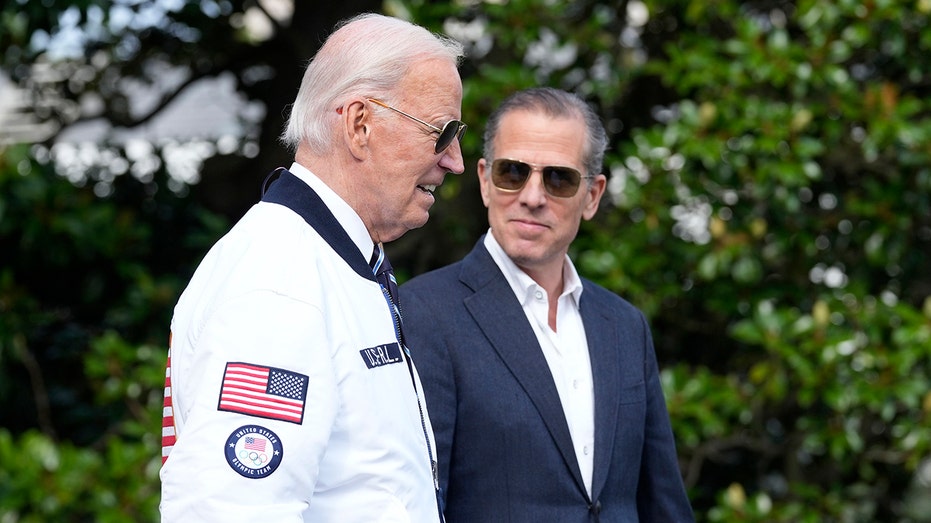
The federal judge overseeing Hunter Biden’s gun trial terminated further court proceedings in his case on Tuesday, in the wake of President Biden’s sweeping pardon that shields his son from being prosecuted for all offenses that he “has committed or may have committed” from Jan. 1, 2014, through Dec. 1, 2024. U.S. Judge Maryellen Noreika, the presiding judge in Biden’s trial in Delaware, announced Tuesday the termination of all further proceedings in the case, citing the clemency grant signed by the outgoing president. Judge Noreika stopped short of dismissing the case outright, however, as requested by Hunter’s legal team. A Delaware jury found Hunter guilty this summer on all three federal felony firearm charges that had been brought before the court by prosecutors. BIDEN’S SWEEPING HUNTER PARDON AT ODDS WITH LONGTIME RHETORIC ON EXECUTIVE POWER: ‘NO ONE IS ABOVE THE LAW’ Prior to the sweeping pardon announcement, his sentencing date had been scheduled for Dec. 12. In announcing the pardon, President Biden criticized the unfair investigation and prosecution of his son, a process he said was “infected” by politics and led to a “miscarriage of justice.” “No reasonable person who looks at the facts of Hunter’s cases can reach any other conclusion than Hunter was singled out only because he is my son — and that is wrong,” the president said in a statement Sunday. However, some critics also noted the pardon broke with Biden’s longtime promises not to pardon his son and risks further eroding the public’s view of the Justice Department. Hunter also pleaded guilty on tax evasion charges in California, which the pardon also covers. The judge in that case, Judge Mark Scarsi, has not yet announced whether he will terminate the proceedings against Hunter or dismiss the case in full. This is a breaking news story. Check back soon for updates.
Recently ousted Dem senator said he’s ‘getting the f— out of here’ when asked about presidential pardon
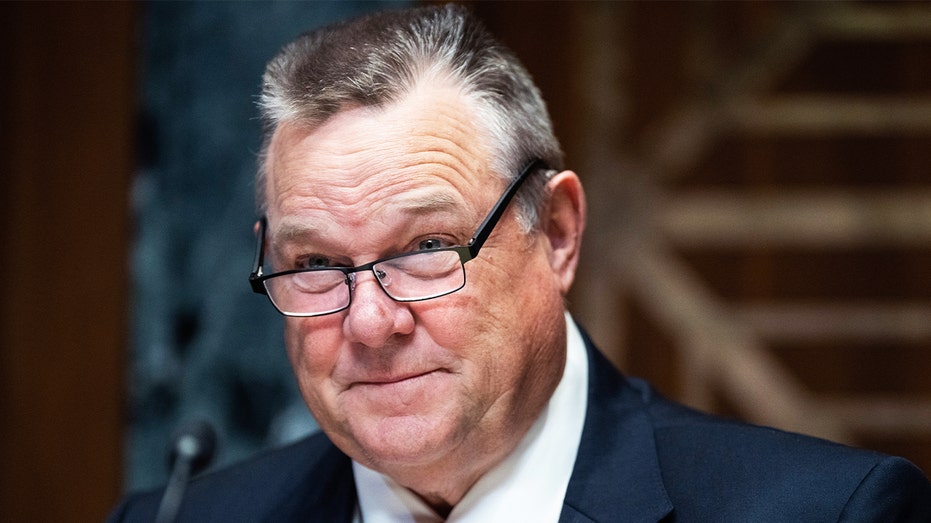
Sen. Jon Tester is getting testy with reporters during his remaining weeks in Congress after being booted from his long-held Montana Senate seat. President Biden pardoned his son, Hunter Biden, on Sunday, absolving him of any charges for crimes he “committed or may have committed” between January 2014 and December 2024. On Monday, Tester was asked about Biden’s controversial move to pardon his son, to which the senator offered a rather blunt response. “I’m one month from getting the f— out of here,” he said with a smile, according to CNN and other outlets. “Ask somebody who counts.” NAVY SEAL TIM SHEEHY OUSTS 3-TERM SEN. JON TESTER IN MONTANA SENATE RACE The comment comes nearly one month after the three-term Montana Democrat was ousted by Republican Navy SEAL Sen.-elect Tim Sheehy in one of the most closely watched races of the 2024 cycle. MONTANA’S ROAD TO RED: HOW THE STATE SHIFTED TO ALL GOP LEADERSHIP FOR THE FIRST TIME IN OVER 100 YEARS While Tester did not answer the question, Democrats on Capitol Hill have been speaking out against Biden’s decision to relieve his son from facing any potential federal charges over the course of the past decade. “President Biden’s decision to pardon his son was wrong. A president’s family and allies shouldn’t get special treatment. This was an improper use of power, it erodes trust in our government, and it emboldens others to bend justice to suit their interests,” Sen. Gary Peters, D-Mich, wrote in a post on X. Sen. Michael Bennet, D-Colo., also said that Biden’s decision “further erodes Americans’ faith that the justice system is fair and equal for all.” Efforts to reach Tester’s office for comment at press time were unsuccessful.

